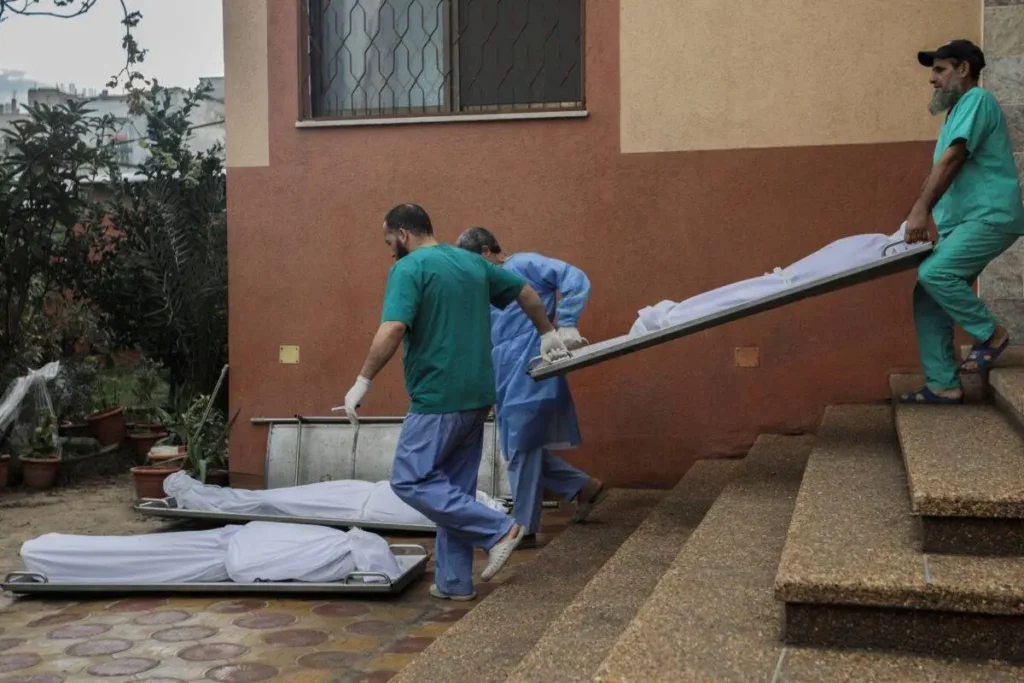Russian Ambassador to Israel Anatoly Viktorov has expressed concern about the high likelihood of the Palestinian-Israeli conflict spreading to other Middle East countries.
During a Rossiya-24 TV broadcast, Viktorov highlighted the intense confrontation between Israelis and Palestinians and emphasized the unfortunate potential for the conflict to expand in the region. He stressed the importance of taking immediate action to prevent such escalation.
“I can say that the level of confrontation between Israelis and Palestinians remains extremely high and the degree of the conflict’s expansion into the region is, unfortunately, very high.”
Anatoly Viktorov
Viktorov attributed the current escalation to what he views as the United States’ flawed policy in the Middle East.
According to the ambassador, the U.S. has contributed to the increased tensions by pursuing unilateral actions, neglecting the interests of states and regions, and promoting agreements that, in hindsight, were not beneficial.
He suggested that rather than working towards conflict resolution, the U.S. appears to be escalating the situation to impose its terms.
The ambassador expressed concern that instead of acknowledging their failures and cooperating with collective actions in the region, the U.S. is continuing its trend of unilateral actions. He believes this approach may be pushing Israel to take unwarranted measures given the current conditions.
The recent surge in tensions in the Middle East can be traced back to an October 7 attack by Hamas militants on Israeli territory from the Gaza Strip.
The attack, described by Hamas as a response to Israeli actions against the Al-Aqsa Mosque, resulted in casualties and the taking of hostages. Israel responded with a total blockade of Gaza, airstrikes in Gaza, Lebanon, and Syria, as well as clashes in the West Bank.
The establishment of a Palestinian state is deemed historically unavoidable, emphasized Lavrov, the top Russian diplomat. He underscored the pressing need for ending hostilities and implementing measures to address humanitarian issues in the conflict zone between Palestinians and Israelis.
“The creation of a Palestinian state is historically inevitable,” Lavrov stated. At the same time, most current discussions on the future of the Gaza Strip do not pay due attention to the creation of a Palestinian state neighboring Israel.
Sergey Lavrov
Lavrov emphasized the immediate need for a halt in hostilities and the implementation of measures to address humanitarian issues in the conflict zone between Palestinians and Israelis.
“The immediate and most urgent task is the cessation of hostilities and the taking measures to resolve humanitarian problems, which are observed everywhere.”
The recent week of Israel’s ground operations in Gaza can be characterized as a “campaign against hospitals.” A significant portion of Israel’s military actions during this period seems to be focused on or in the vicinity of medical facilities in Gaza City.
During Wednesday morning, the Israeli army conducted a raid on al-Shifa Hospital, the largest in the Gaza Strip. The hospital had been surrounded for several days, with the military targeting its compounds and immediate surroundings.

According to doctors within the hospital, there were occasional firings, including the use of snipers. On Tuesday, the Gaza health ministry reported at least 40 casualties at al-Shifa Hospital.
The Israeli authorities claim that Hamas’s Qassam Brigades have underground command centers or other facilities beneath some of Gaza’s hospitals. However, Hamas strongly denies this assertion.
Meanwhile, Iran’s foreign minister has urged an immediate cessation of Israel’s violent aggression against the Gaza Strip, emphasizing that the occupying regime stands “no chance” of winning the war. During a meeting with Martin Griffiths, the head of UN humanitarian operations,
in Geneva on Wednesday, Hossein Amir-Abdollahian highlighted that the Israeli attacks on the Palestinian population in Gaza only escalate the costs for Washington, given Tel Aviv’s status as a close ally.
“Unfortunately, the scope of the Zionist regime’s attacks on Gaza is expanding, and it is necessary to take immediate and effective measures to stop them,” he said.
How can the Arabs avoid the expansion of hostilities within the region, when the United States has discreetly elevated its military assistance to Israel, providing additional advanced missiles and equipment amid the harsh attacks on the Gaza Strip by the occupying regime, as reported?
According to a Wednesday report by Bloomberg, the Pentagon has quietly increased military aid to Israel by supplying more laser-guided missiles for the regime’s Apache gunship fleet, along with bunker-buster munitions, 155mm shells, night-vision devices, and new army vehicles.
“As of late October, for example, all 36,000 rounds of 30mm cannon ammunition, 1,800 of the requested M141 bunker-buster munitions and at least 3,500 night-vision devices were delivered,” the report said.
Referring to an internal Defense Department inventory, the media source stated that the weapons are either already in transit or efforts are underway within the Defense Department to make them accessible from stockpiles located in the United States and Europe.


